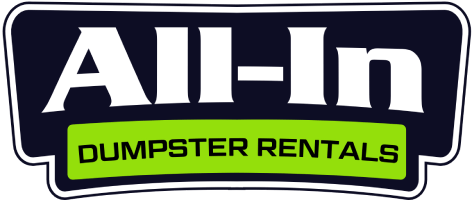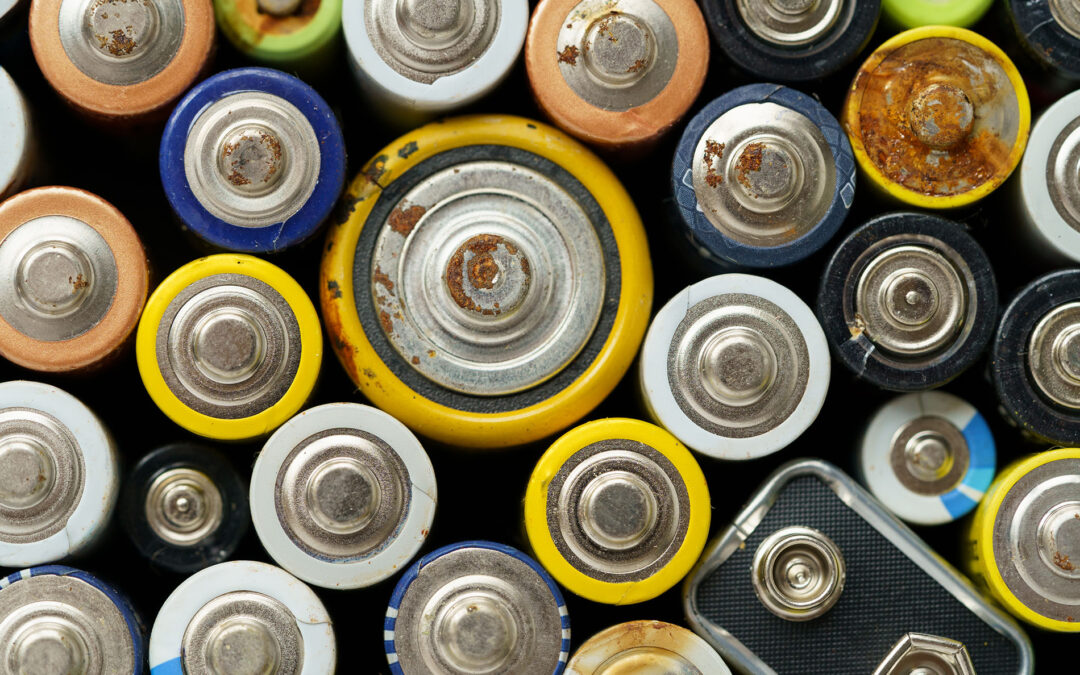Almost every home in the America has some form of domestic hazardous waste.
This encompasses everyday items like pesticides, fertilizers, household cleaning supplies, and motor oil. Disposing of these chemical substances in your home trash can or the majority of rented dumpsters is strictly forbidden, not to mention dangerous for our eco-system. That’s why it is imparitive we all do our part and make sure to appropriatly dispose of domestic hazardous waste. It is quite literally essential, for the environment’s well-being and health. Here at All-In Dumpster, we care about the enviroment and we do our part to ensure nothing hazardous is discarded improperly.
In this article, we will explore, what is considered domestic hazardous waste, the extent of the problem, and how you can correctly discard your hazardous waste.
Typical Domestic Hazardous Waste
The Environmental Protection Agency, otherwise known as the EPA, emphasizes that hazardous household waste should be kept separate from regular household trash. Refraining from pouring these chemicals into sewers, storm drains, or unauthorized dumping sites is equally vital. Chemicals can readily infiltrate the groundwater we consume and negatively impact fish and other wildlife.
But which items are considered domestic hazardous waste? Below we list things nearly every home in America has under their kitchen sinks, in their garages, storage sheds, etc. that are considered hazardous by the EPA.These items include:
- Cans of paint (even empty ones with leftover residue)
- Kitchen and bathroom cleaning products
- Batteries (throwing small alkaline batteries in the trash is allowed but only in limited quantities)
- Motor oil
- Bleach
- Various automotive fluids
- Varnishes and stains
- Lawn fertilizers
- Insect and pest sprays or killers
- Pool chemicals
- Medication
The Extent of the Problem
You may believe that discarding a couple of quarts of used motor oil or a few almost empty paint cans in the trash has no significant environmental impact, but to be frank, you are wrong. The University of Missouri’s Sustainability Office reveals that an alarming 192 million gallons of used motor oil are incorrectly discarded annually in the United States. Furthermore, the office highlights that just one gallon of used motor oil has the potential to pollute a staggering one million gallons of water! As a result, those few quarts of oil you throw in the trash significantly affect the environment’s health.
The Correct Method for Discarding Hazardous Waste
So where should you dispose of it, if you can’t throw it out in the garbage or dumpster? Many communities local waste management companies organize designated household hazardous waste collection days to gather toxic waste. These local collection events have proven highly effective in removing hazardous waste from municipal waste systems. You can also check with your local electronics retailers, as many offer recycling programs for older devices. Additionally, consider contacting recycling centers that specialize in e-waste for the proper disposal of your old television. Engaging in these programs not only ensures safe disposal but also promotes environmental sustainability.
There are alternative options for disposing of specific items. For instance, most local instant oil change centers recycle motor oil. It’s important that motor oil never end up in a landfill, the consequences are too great.
Another item with specific disposing needs are lead-acid batteries. We’ve all heard to never throw away your old batteries, but most people don’t know why. Batteries contain heavy metals including lead, mercury, cadmium, nickel and silver, which, if leaked into our soils and waterways, poses great harm the environment and the people of our community, when improperly managed at the end of their service life.
There are many different types of lead-acid batteries, including your car’s batteries. When your car battery dies the best place to take it is your local auto parts store for proper disposal. Other lead-acid batteries need special attention too when it comes time to toss them. Check your area for stores such as Batteries Plus, they take used and old batteries and safely dispose of them. These batteries, like the batteries to control you television’s remote control, include:
- AA batteries – Also known as “Double A” batteries, are the most well known battery size. Used in countless household items.
- AAA batteries – The second most popular type of battery, the “triple A” battery is used in items like small toys, calculators and thermometers.
- AAAA batteries – Not as well known as its A type counterparts, the “quadruple A” battery powers important items such as glucose meters and hearing aid remotes. These small, but powerful batteires are also used to light up penlights and laser pointers.
- C batteries – These heavy duty batteries supply power to larger items like, toys, portable radios, and flashlights.
- D batteries – This type of battery is essential to everyday life. Providing extended power to things that we count on to work when we need them. Things such as, stereos, large flashlights, and automatic soap and paper towel dispensers.
- 9V batteries – This particular type of battery is known for its rectangular shape. It is used in devices that need a higher voltage and a lot of power. The 9V battery is also capable of withstanding temperature fluctuations of 0 to 130 degrees Fahrenheit, making it ideal for use in battery powered temperature alarms, infrared thermometers, and electronic portion scales used to measure weight of foods that may vary in temperature.
- CR123A batteries – This battery may be significantly shorter than the AA battery, but it packs 3x more power than its more popular cousin. Commonly used for tactical equipment, wireless security, and home automation. These batteries last longer than most, thanks to their large power-to-size ratio.
- 23A batteries – Packing a punch with 12V of power, these small batteries are commonly used in devices like garage door openers, watches and specialized medical devices.
- CR2032 batteries – Characterized by its flat round shape, this battery is unique compared to most other batteries. These batteries provide long-lasting power to everyday devices like wrist watches, small toys, calculators, and some medical devices.
Your community or local trash hauler may offer other disposal options. If you need to dispose of a large amount of household hazardous waste, contact a local dumpster rental provider to learn about your options.
Additional Tips for Handling Household Hazardous Waste
Apart from proper disposal methods, it’s essential to take preventative measures to minimize hazardous waste generation and handle it safely. Here are some additional suggestions for managing household hazardous waste:
- Purchase Only What You Need – Avoid buying large quantities of hazardous materials. Purchase the smallest amount necessary for your task to minimize leftover waste.
- Choose Eco-Friendly Alternatives – Opt for environmentally friendly products whenever possible. This not only reduces hazardous waste but also promotes a healthier living environment.
- Store Hazardous Materials Properly – Keep them in their original containers, tightly sealed, and kept in a cool, dry place away from heat sources and out of reach of children and pets.
- Share Surplus Materials – If you have excess hazardous materials, consider sharing them with neighbors, friends, or family members who might need them for a similar project.
- Educate Yourself and Others – Learn about proper disposal methods and share this information to increase awareness and encourage responsible waste management.
- Recycle Responsibly – Take advantage of local recycling programs for batteries, electronics, and CFL bulbs. Inspect your local waste management authority or recycling center for specific guidelines.
- Do Not Mix Hazardous Wastes – Different hazardous materials can create dangerous chemical reactions. Keep them separate to ensure safe disposal.
From Hazardous Waste to Reconstruction Waste With All-In Dumpster
You can contribute to a healthier environment and community by taking these steps mentioned above. Remember, proper disposal of household hazardous waste is our responsibility and our duty to protect the planet for future generations.
Whether you need us to pick up a bunch of junk or your renovation waste, we have you covered. Click Here or Call Us Now at All-In Dumpster to book a consultation appointment or rent a dumpster today!

